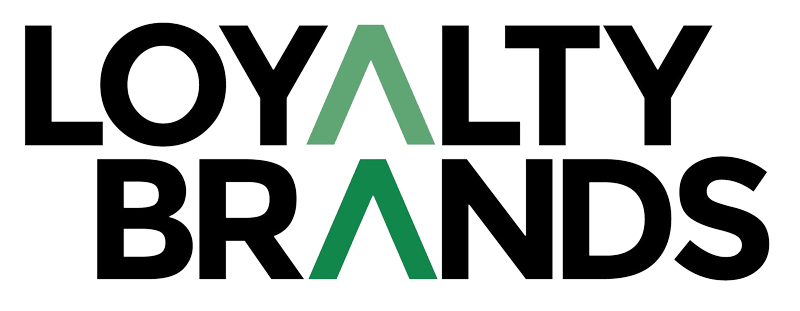Starting a business is an exciting endeavor, but one of the fundamental decisions entrepreneurs face is whether to start a franchise or an independent business. Both paths have their advantages and disadvantages, which must be carefully considered to make an informed choice. In this article, we will delve into the key factors of risk, brand recognition, and support systems, comparing franchising and independent business ownership. By examining these factors, you can gain valuable insights that will help guide your decision-making process.
Understanding Franchising
Franchising is a business model where a franchisor grants a franchisee the rights to operate a business under their established brand. The franchisee benefits from using a proven business model and an established customer base. A franchise agreement governs the relationship between the two parties, outlining the obligations and rights of both the franchisor and the franchisee. This arrangement offers a sense of security, as the franchisee can leverage the success and experience of the franchisor.
One significant advantage of franchising is the lower risk compared to starting an independent business. Franchises often have a higher success rate due to the established systems and processes in place. The franchisor provides comprehensive training, operational guidelines, and ongoing support to help franchisees navigate the challenges of running a business. This support can prove invaluable, especially for first-time business owners who may lack experience in certain aspects of entrepreneurship.
Advantages of Having a Business Franchise vs. Independent Business
Brand recognition is another crucial advantage of franchising. Starting with an established brand gives franchisees an immediate advantage in the market. Customers are more likely to trust and patronize a well-known brand, leading to a faster ramp-up period and increased revenue potential. Franchisors typically invest heavily in marketing and advertising to enhance brand visibility and attract customers to all franchise locations. This shared marketing effort benefits franchisees by reducing individual marketing expenses and leveraging the collective strength of the brand.
Furthermore, the support systems provided by franchisors contribute significantly to the success of franchisees. The franchisor’s expertise and experience can guide franchisees through various operational challenges, such as site selection, supply chain management, and staff training. The franchisor often conducts initial training programs and offers ongoing support, ensuring that franchisees have access to the resources and assistance they need to thrive. These support systems create a network of fellow franchisees who can share insights and best practices, fostering a sense of community and collaboration.
- Lower Risk: By joining a franchise, a franchisee gains access to a proven business model, minimizing the chances of failure compared to starting from scratch. The franchisor offers comprehensive training, operational guidelines, and ongoing support, equipping the franchisee with the necessary tools to navigate potential obstacles confidently.
- Brand Recognition: In the realm of brand recognition, we acknowledge the undeniable head start that franchises possess. By opting for a good franchise, we can tap into an existing customer base and the trust already associated with the brand. Imagine the instant allure of a Starbucks franchise, attracting coffee lovers who are already familiar with the brand’s quality and ambiance. Such recognition translates into a faster ramp-up period and an increased potential for revenue generation.
- Support Systems: The robust support systems provided by franchisors is a great advantage. Franchisees receive training across various areas, including operations, marketing, and customer service. Ongoing support, such as regular consultations and access to a network of fellow franchisees, ensures that the franchisee is never alone when confronted with challenges. The franchisor’s expertise and experience serve as a guiding force, helping us navigate the intricacies of the business landscape.
Disadvantages of Franchising
It is important to carefully consider the potential disadvantages. By understanding and evaluating these disadvantages, entrepreneurs can make an informed decision that aligns with their long-term goals and aspirations.
- Lack of Independence: One notable compromise is the reduced level of independence compared to an independent business venture. Franchisees must adhere to the franchisor’s rules and guidelines, limiting their ability to make autonomous decisions on aspects such as pricing, product offerings, and marketing strategies. While some entrepreneurs thrive within established frameworks, others crave the freedom to explore uncharted territories.
- Costs and Fees: this is a big consideration with franchising. Franchisees typically incur an initial franchise fee, ongoing royalties, and various other financial obligations stipulated by the franchisor. These financial commitments can significantly impact profitability and cash flow, necessitating meticulous financial planning and scrutiny. Would the franchisee weighs this aspect carefully, evaluating the potential returns against the associated expenses?
- Limited Flexibility and Growth: Another consideration that future franchisee finds constraining is the limited flexibility for growth within a franchise. Franchisors often impose territorial restrictions and guidelines that may hinder franchisees from expanding or diversifying their offerings beyond the predetermined scope. Potential businessmen aspire to have the freedom to pivot and explore new opportunities as their business evolves, an advantage that independent business owners may grant her.
Independent Business Considerations
When weighing the pros and cons of franchising versus independent business ownership, it is essential to consider the unique advantages and considerations of starting an independent business.
Choosing between a franchise and an independent business venture is a deeply personal decision. Aspiring entrepreneurs must evaluate their risk tolerance, growth aspirations, and desire for independence to make the choice that aligns with their entrepreneurial dreams.
Independence and Autonomy: One of the key attractions of independent business ownership is the freedom to make autonomous decisions. As an independent business owner, you have the ability to shape your brand, define your own vision, and take calculated risks without adhering to the guidelines set by a franchisor. This level of independence allows for greater flexibility and creativity in adapting to market trends and pursuing innovative strategies.
Brand Building and Differentiation: Starting an independent business offers the exciting opportunity to build a brand from the ground up. You can craft a unique identity, define the brand’s values, and develop a strong connection with customers. By differentiating from competitors through innovative products, exceptional customer service, or a distinct brand personality, you can create a niche and establish a loyal customer base that resonates with her vision.
Flexibility and Adaptability: Unlike franchising, independent business ownership provides the freedom to pivot and adapt quickly to changing market dynamics. You can swiftly respond to customer demands, experiment with new offerings, and adjust business strategies without navigating through layers of franchise regulations. This agility can be particularly advantageous in dynamic industries or during times of economic uncertainty.
Unlimited Growth Potential: While franchises may impose restrictions on growth, independent business owners have limitless potential for expansion and diversification. You can choose to scale your business organically, expand into new locations, or explore additional product lines or services based on market demand. The ability to chart your own growth trajectory allows the businessman to shape the future of his business and seize opportunities without external limitations.

Challenges of Building a Brand from Scratch: Starting an independent business comes with its own set of challenges. Unlike franchises, independent businesses lack the immediate brand recognition and customer trust that established franchises enjoy. Sarah must invest significant time, effort, and resources into building brand awareness, marketing campaigns, and customer acquisition strategies. Additionally, without the support systems provided by franchisors, independent business owners may face steeper learning curves in areas such as operations, marketing, and supply chain management.
With this article, you are given another perspective on what path to take when going into business. Either you get a business franchise vs. independent business.
Hopefully to see you on our next article.

